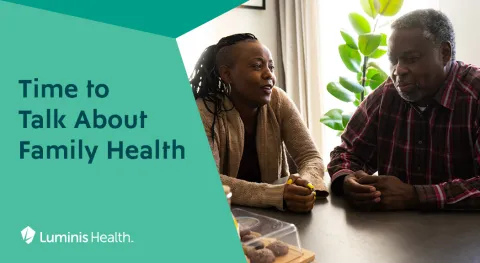The use of tobacco can often lead to nicotine dependence and other resulting health problems. However, people who smoke always have the option to quit. In fact, the number of former smokers has been greater than the number of current smokers since 2002, according to the Centers for Disease Control and Prevention (CDC).
If you have made the decision to quit smoking, you should be aware of a few common misconceptions. Getting the facts about quitting smoking is important in order to make your journey to a tobacco free life a little easier!
Misconception: Today is the day! I quit smoking.
Actually… you should have a plan. It is easy to be impulsive, wake up one day and decide to throw away your cigarettes. But making a huge lifestyle change like quitting smoking requires a plan. You want to set yourself up for success. It is important to be prepared for the triggers – those routines and habits that you built around smoking. You will need alternative activities when you stop smoking. Preparing for potential urges or cravings to smoke is critical to staying on track. If you are more comfortable when you quit smoking, you will be more likely to stay on track. You may experience “recovery symptoms”, (also known as nicotine withdrawal). Understanding why those symptoms are occurring and learning tools and strategies to manage them can help you cope and not be thrown off when they happen.
Misconception: All I need to do is take a pill or put on a patch!
Actually… your plan should include other strategies in addition to medication. There are seven FDA-approved products that can help you to quit smoking. Combining smoking cessation medication with some type of supportive classes or counseling can double your chances of quitting successfully. Try not to fall into the trap of a miracle cure or the latest novel product, like e-cigarettes. These have not been fully tested as an effective tool for quitting smoking. There are many options that have been tested and proven to be effective.
Misconception: I won’t tell anyone I’m quitting…just in case I don’t!
Actually… it’s good to have support. Don’t keep it a secret. Support is very important to your success. Find people who will celebrate your successes and will support you through the tough times. Let people know how they can help you in your journey to quit smoking. There are several options for getting the support you need – classes, individual counseling, online, smart phone apps, text-to-quit programs and Nicotine Anonymous groups.
Misconception: I’ll never be able to quit, I have tried a thousand times!
Actually… you’re doing a great job and you should be more forgiving of yourself. It’s easy to think that it’s one-and-done. Unfortunately, when you quit smoking, like any other addictive substance, slips and relapses are part of the process. Learning how to manage slips and avoiding relapses is important. Learn from your experience and apply it to your next quit attempt. It’s not an event, it’s a process. Be kind to yourself and keep trying!
Misconception: Quitting smoking is all about willpower!
Actually… not really. You may think it’s all about willpower and if you can’t do it on your own that it’s a personal failure or weakness, but quitting tobacco is a tall order. Nicotine is a highly addictive chemical. Don’t forget about all the resources, support and medications available to you. You can do this!
Misconception: This plan worked for my friend, surely, it’ll work for me too!
Actually… plans are very individualized. What works for someone else may not necessarily work for you. Talk to your health care provider or a tobacco treatment specialist to discuss options and determine the best plan for you.
Here are a few things you can do to keep moving ahead on the path to quitting smoking:
- Visualize yourself as a nonsmoker. If you’ve been smoking for many years, you may not remember a time when you did not smoke. Try picturing yourself as a non-smoker, going through your daily routines without a cigarette or using tobacco. Visualizing yourself as a non-smoker can prepare you for when you actually quit. When you first quit smoking, you may feel uncomfortable and awkward. You may feel like you don’t know what to do with your hands, during a work break, on the phone or when driving. Think about how you can handle these situations differently. Perhaps using a cinnamon stick or a straw if you need something to hold; replace your breaks with walks; doodling while you’re on the phone; and sipping on a water bottle in the car. These little tricks can help you get through those challenging times.
- Celebrate small successes. If you quit for two days or two weeks – those are wins! That means you can go without smoking and you can actually quit. Those small wins are huge. Reward yourself, you’re doing something really great!
- Identify your why. Examine the personal reasons you have for quitting smoking. Those reasons will drive you and keep you motivated to get you through the difficult times. Write your reasons down and carry them with you so you can pull them out when you need an extra boost of confidence and motivation. Constantly remind yourself why it is important to you to quit.
- Recognize that smoking has been a part of your life for a long time. Smoking has served some purpose in your life and that is one of the reasons you continue to smoke or use tobacco. Try to identify that purpose or need and fill that void with something else you enjoy and that will contribute to your overall health. Try to focus not on what you are giving up but what you are gaining by giving up tobacco.
- Celebrate quitting but don’t become too overconfident. Once you have quit smoking, try not to become too overconfident and think that you can enjoy the “occasional” cigarette. Once you have been dependent on nicotine, you will always be dependent on it. Remember — you’re a puff away from a pack a day! Think about how hard you worked to become tobacco free!
It might take a few attempts to quit smoking, but there are many resources available to help you along the way. It’s a marathon, not a sprint. Pace yourself, be kind to yourself and above all, don’t give up!
Author
 Joanne Ebner
Joanne Ebner is a Cancer Prevention Program manager at Anne Arundel Medical Center (AAMC). You can reach her office at 443-481-5366/67.
Originally published Aug. 20, 2018. Last updated Sept. 30, 2019.

 Joanne Ebner is a Cancer Prevention Program manager at Anne Arundel Medical Center (AAMC). You can reach her office at 443-481-5366/67.
Joanne Ebner is a Cancer Prevention Program manager at Anne Arundel Medical Center (AAMC). You can reach her office at 443-481-5366/67. 


